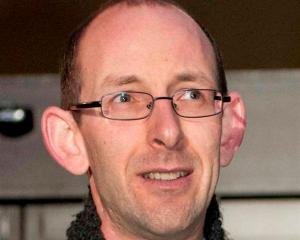The Bain retrial was moved to Christchurch because of the risk a jury comprised of Dunedin people would be prejudiced or sympathetic towards the victims, the trial judge's decision on the matter reveals.
The risk was increased by intense media coverage with a "local flavour" and the probability that potential jurors were more likely today to know about contentious pieces of local evidence than they did in 1995, Justice Graham Panckhurst's May 7 decision says.
David Bain was acquitted of the murders of five members of his family earlier this month, following a three-month retrial.
At a March hearing of the defence's application to have the trial moved from Dunedin to Christchurch, lawyers for Mr Bain argued there was a real risk that if the trial was held in Dunedin, jurors might be selected who believed they knew things about the case or had contacts or information that predisposed them to feel sympathy for one or more of the victims.
That was because so many Dunedin people were involved in the police investigation, knew people who were, or knew of one or more of the victims personally.
Much of their argument also focused on ongoing local media coverage in Dunedin which they said was more pronounced and parochial than in other centres, increasing the risk of predisposition or empathy among the jury pool.
Dunedin newspaper coverage exhibited a "defensiveness" and "sensitiveness" about the case beyond that in other main centres, lawyer Paul Morten said.
"The subject matter displayed a local perspective which reflected concern for members of the extended Bain family, concern and implied support for local police officers and studied interest in the retrial."
Also, up to 1000 local people and 50 police were involved in the investigation of the deaths and the family was heavily involved in the community, meaning many people knew them.
For the Crown, Keiran Raftery argued the case had received unprecedented coverage across the whole country in a variety of media.
"The average New Zealander is as well-informed or ill-informed as the average resident of Dunedin."
The Bain family was not well-known, nor a prominent family in Dunedin, rather the evidence suggested the Bains were relatively private, so the risk of local empathy was low, especially 15 years later.
Accordingly, the normal approach - that the trial of crimes should occur in the community where they occurred - applied equally in this case, he said.
Justice Panckhurst found there was some risk of the jury being empathetic to the victims, but "probably not a real risk" because many of those who knew the victims would have moved on from Dunedin.
The real risk was in jurors being selected who would be influenced by their belief they had some knowledge of the facts of the case, or connection to witnesses.
He noted prospective jurors were also "much more likely" to have knowledge of the contentious local Dunedin evidence in the case in 2009, as opposed to 1995, at the time of the first trial.
"The process of appeals, publications of books, petitions, most recently the Privy Council decision, has ensured as much. There has been no opportunity for collective memory to fade.
"For these reasons I am of the view that there is a real risk that a jury drawn from Dunedin will be afflicted with members who consciously, or unconsciously, are influenced by local knowledge of one sort or another."





